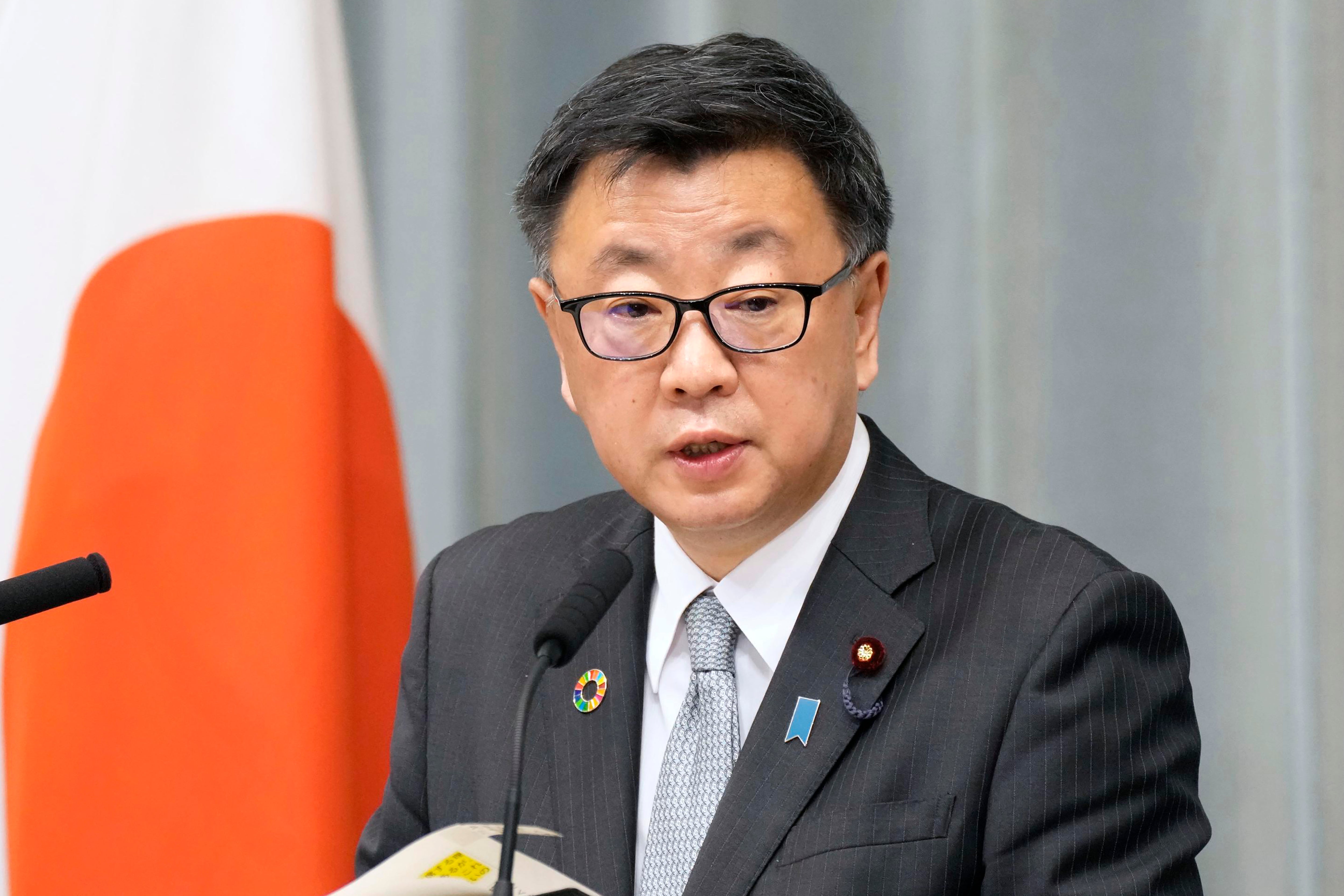Japan won't send government delegation to Beijing Olympics
Japan says it won’t send a delegation of ministers to represent the government at the Beijing Games but three Olympic officials will attend

Your support helps us to tell the story
From reproductive rights to climate change to Big Tech, The Independent is on the ground when the story is developing. Whether it's investigating the financials of Elon Musk's pro-Trump PAC or producing our latest documentary, 'The A Word', which shines a light on the American women fighting for reproductive rights, we know how important it is to parse out the facts from the messaging.
At such a critical moment in US history, we need reporters on the ground. Your donation allows us to keep sending journalists to speak to both sides of the story.
The Independent is trusted by Americans across the entire political spectrum. And unlike many other quality news outlets, we choose not to lock Americans out of our reporting and analysis with paywalls. We believe quality journalism should be available to everyone, paid for by those who can afford it.
Your support makes all the difference.Japan announced Friday it won't send a delegation of ministers to represent the government at the Beijing Games but three Olympic officials will attend, a mixed response to a U.S.-led move to boycott the games to protest China s human rights conditions.
Chief Cabinet Secretary Hirokazu Matsuno told a regular news conference that “We have no plans to send a government delegation.”
He said Tokyo Olympic Organizing Committee President Seiko Hashimoto, Japanese Olympic Committee President Yasuhiro Yamashita and Kazuyuki Mori, the president of the Japan Paralympic Committee, will attend.
Matsuno said the three officials are attending at the invitation of the International Olympic and Paralympic Committees to represent the JOC and IPC.
Asked if it’s a diplomatic boycott, Matsuno responded by saying: “We don’t use a particular term to describe how we attend.”
Japan's decision not to send a government delegation follows a move by the United States and a few other democratic nations including Australia Britain and Canada, which cited China's human rights violations.
Japan, as a U.S. ally and considering its biggest trade partner is China, is in a difficult position and has taken a softer approach than its western partners on human rights situations in China's Xinjian region and Hong Kong.
Japan Prime Minister Fumio Kishida has made human rights a key part of his diplomacy and created a special advisory position to tackle the issue and has said he hopes to make a constructive relations with China. He has been repeatedly asked what to do about the Beijing Olympics in recent weeks but only said he was to make a decision comprehensively for Japan's national interest.
“Japan believes that it is important for China to guarantee the universal values of freedom, respect for basic human rights, and the rule of law, which are universal values in the international community,” Matsuno said. Japan took those points into consideration to make its own decision, he added.
China has criticized the United States and other countries for violating political neutrality required in the spirit of the Olympic Charter.
Japanese athletes will take part in the Games beginning Feb. 4 as scheduled.
“Japan hopes the Beijing Olympics will be held as the festival of peace in the spirit of Olympics and Paralympics,” Matsuno said.
___
More AP Winter Olympics: https://apnews.com/hub/winter-olympics and https://twitter.com/AP_Sports